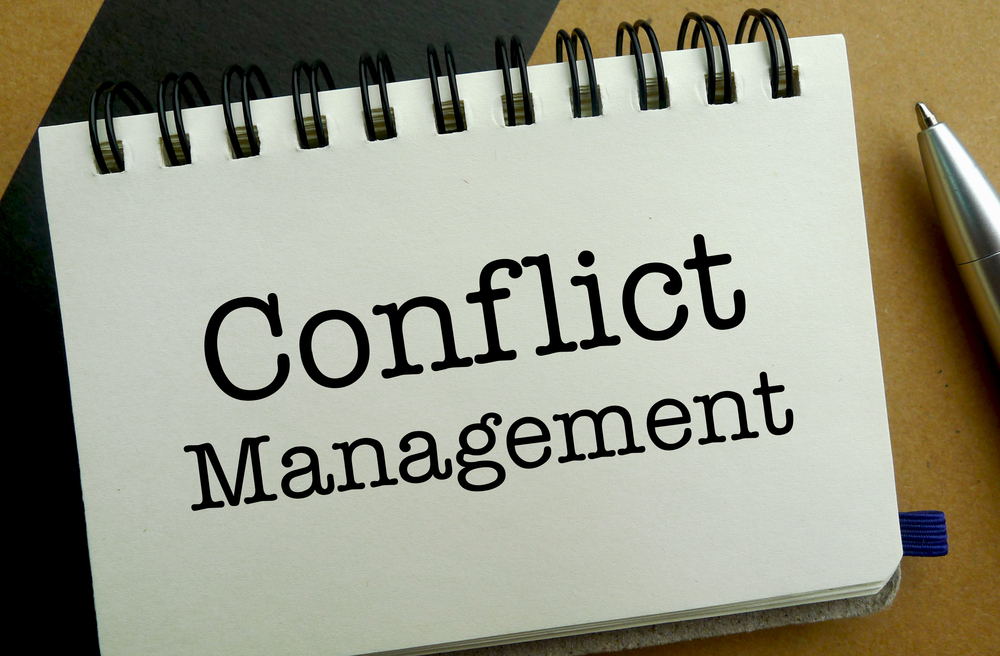CONFLICT MANAGEMENT

Enquire Now
WHAT IS CONFLICT MANAGEMENT
Conflict management is resolving disputes or disagreements between people or groups productively and constructively. These conflicts can occur in various settings, including personal relationships, professional contexts, or community settings. The cause of the conflict may be a variety of factors, such as differences in beliefs, values, objectives, or perceptions. The core competencies of conflict management are to identify the source of the dispute, de-escalate the situation, and come up with mutually agreeable solutions. These competencies include communication, listening, empathy, negotiating, and problem-solving. Effective conflict management can prevent conflicts from escalating, minimize adverse effects, and have positive outcomes such as enhanced relationships, greater understanding, and improved collaboration.
WHY IS CONFLICT MANAGEMENT IMPORTANT
Conflicts are unavoidable and can occur in many different contexts, both at home and in the workplace. Conflict management coaches provide individuals and organizations with the tools and knowledge to manage conflict positively and productively effectively. Here are a few reasons why:
- Reduce stress and anxiety: Conflict management coaching helps individuals and teams reduce stress, anxiety, and other negative emotions associated with conflict.
- Improve productivity: Conflict can be a significant distraction and decrease productivity and performance. With conflict management coaching, individuals and teams can resolve conflicts quickly and effectively, allowing them to concentrate on their work and improve their performance.
- Strengthen relationships: Conflict can damage relationships and negatively impact the work environment. By improving communication, respect, and collaboration, individuals and organizations can build stronger relationships.
- Reduce costs: Conflict can be costly for individuals and organizations, leading to expensive legal battles, loss of productivity, and damage to relationships.
- Encourage innovation: Conflict management coaching allows individuals and teams to develop creative solutions that address the needs of all stakeholders, resulting in new opportunities and innovation.
TARGET AUDIENCE FOR DEVELOPING CONFLICT MANAGEMENT
The type of conflict management training you provide may differ depending on the objectives and scope of your training. However, in general, conflict management education can help a variety of people and groups, such as:
- Conflict management is essential for business professionals, such as managers, executives, and other business professionals, who manage teams, projects, and client relationships.
- Conflict management is also an essential skill for human resources professionals, who must be able to effectively and efficiently resolve workplace conflicts.
- Healthcare professionals who often work in stressful environments need conflict management training.
- Educators and educators need conflict management training to effectively and respectfully manage conflict in the classroom.
- Law enforcement and security personnel need conflict management training to effectively and efficiently resolve conflicts while ensuring safety and security.
- Customer service professionals need conflict management training to resolve customer complaints effectively.
LEARNING PLATFORMS FOR CONFLICT MANAGEMENT
Learning conflict management can be done in various ways, including online courses, training programs, webinars, workshops, and coaching.
- Many organizations offer Webinars and provide an opportunity to learn from experienced trainers and interact with others.
- A trained coach provides training that can be done online or offline and is tailored to meet the individual’s needs and goals.
- Books and articles are also available to learn more about conflict management. These resources are cost-effective and can be used to learn conflict management at one’s own pace.
ADVANTAGES OF LEARNING CONFLICT MANAGEMENT
There are many advantages to conflict management. Learning conflict management can change the way you communicate with others. This can lead to better relationships and tremendous success in life and work. Learning conflict management can help you improve your communication skills. It can also help you understand how to handle difficult situations better. You will learn how to identify and resolve conflicts proactively and constructively. This will help you prevent disputes from escalating into more significant issues that are more difficult to determine. Conflict management can also help you develop empathy and active listening skills. These skills are essential for trust and collaboration. Having conflict management skills can also help you be more confident and resilient. This can help you face difficult situations more confidently and reduce stress levels.





